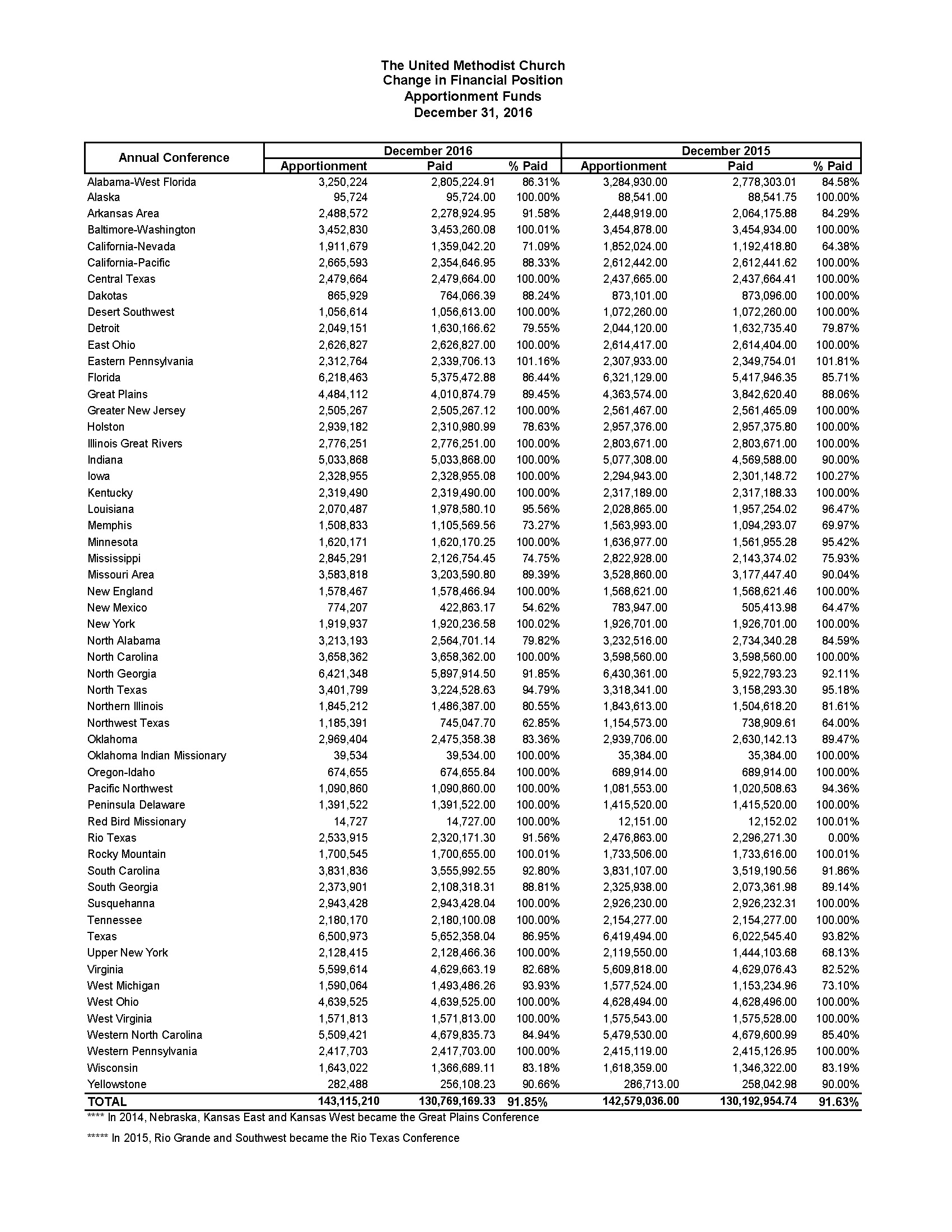
by Steve | Mar 1, 2017 | In the News

At sea aboard USS Milius (DDG 69) Jan. 17, 2003 — Rear Adm. Barry Black, Chief of Naval Chaplains, speaks to Sailors aboard the guided missile destroyer. U.S. Navy photo by Chief Photographer’s Mate Johnny Bivera. (RELEASED)
Interview by Drew Dyck-
When Senate chaplain Barry Black finished his keynote address at the National Prayer Breakfast on February 2, the normally restrained crowd of religious leaders, politicians, and visiting dignitaries jumped to their feet and cheered wildly. Then President Trump took the podium and voiced his appreciation. “I don’t know, Chaplain, whether or not that’s an appointed position,” President Trump said. “I don’t even know if you’re a Democrat or if you’re a Republican, but I’m appointing you for another year.” We caught up with Black to talk about his new book, Nothing to Fear, pastoring both sides of the political aisle, and the importance of a leader’s “ethical congruence.”
Many described 2016 as a scary year. But the message of your book is that there’s nothing to fear. Can you unpack that?
Well, it’s a message that’s all through the Bible. First John 4 says, “There is no fear in love, for perfect love casteth out fear.” And 2 Timothy 1:7 says, “God has not given us a spirit of fear.” So whenever we as people of faith begin to experience the fear effect, we know immediately that it is not of God. We need to question and challenge it. And as we discover how perfect love enables us to cope with fear, then we ought to be able, as leaders, to share those coping strategies with others.
When a senator comes to you with fears and worries, how do you respond?
It’s very difficult to live in this world without some anxiety and fear. Our Lord said, “In this world you will have trouble” (John 16:33). In Job 14:1, it says, “Man that is born of a woman is of few days, full of trouble.” I’ve had a number of senators with health challenges, and they’re scared, as anyone would be. I’ve counseled men with a grandchild in some desperate strait or bad relationship. So it’s not just what happens in the chamber or in the committee room. In the course of their personal lives, they’re confronted with things that can terrify. When the doctor says, “We’ve done all we can,” or when the doctor gives you an expiration date, these are the realities that our lawmakers have to deal with in spite of all the other stuff they are juggling.
No matter how much money you have, no matter how much power and position you have, there are always things you can’t control. You can’t avoid every crisis. You can’t keep your children alive. Not in this crazy world. There are no guarantees, and that’s why I turn to the Psalms: “Call upon me in the day of trouble, and I will deliver you” (Psalm 50:15). So they come because of those kinds of fears, and it’s more common than many people would suspect.
To read the full article, click here.

by Steve | Feb 24, 2017 | In the News, Perspective E-Newsletter
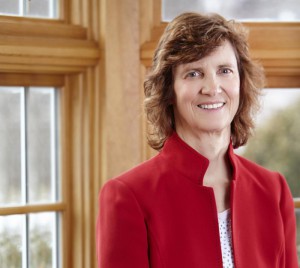
Bishop Laurie Haller, UMNS
By Walter Fenton-
On February 15, Bishop Laurie Haller of the Iowa Episcopal Area confirmed that a church trial had been averted regarding a complaint filed against Bishop Julius Trimble of the Indiana Episcopal Area.
The complaint stemmed from Trimble’s handling of a complaint filed against the Rev. Anna Blaedel, a campus minister at the University of Iowa Wesley Center, who announced on the floor of the 2016 Iowa Annual Conference, “I am a self-avowed practicing homosexual. Or in my language, I am out, queer, partnered, clergy.” Trimble, at the time, was the presiding bishop of the Iowa Episcopal Area and therefore the presiding officer at the time of Blaedel’s announcement.
As intended, Blaedel’s candid announcement stirred controversy. LGBTQ+ advocates were heartened by her willingness to put her clergy credentials at risk. And supporters of the church’s sexual ethics and long held teachings on marriage were stunned by her open admission.
But perhaps as surprising was Trimble’s response, or lack thereof. Having granted Blaedel the moment of personal privilege, he offered no rebuttal to her open admission. Shortly after her address, three clergy members filed a complaint against her.
In the weeks after the conference, Trimble engaged the parties in an attempt to avoid a church trial and reach a just resolution. But given “Blaedel’s open admission of violating church law there were really only two paths to a just resolution: a complete retraction of her statement or her voluntary resignation. Neither materialized.
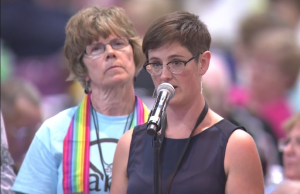
The Rev. Anna Blaedel: “I am a self-avowed practicing homosexual.”
But instead of pursuing the matter, on the second to last day of his tenure, Trimble informed the complainants and Blaedel that he was dismissing the case entirely without comment. In response, 17 lay and clergy members of the Iowa Annual Conference filed a complaint against him for failing to fulfill the duties of his episcopal office.
As part of the just resolution, Trimble has acknowledged in an open letter to Iowa Annual Conference delegates, “that my presiding of Annual Conference in June 2016 could have been more helpful to the body had I made a pastoral statement rather than move on to the next order of business following granting a point of personal privilege to Rev. Anna Blaedel.”
Trimble goes on to write, “I should have articulated a clear process for follow-up regardless of the outcome of the complaint process. For any harm that my leadership may have caused lay and clergy in the Iowa Conference, I ask for your forgiveness.”
As for Blaedel, she continues to preside as the campus minister at the University of Iowa Wesley Center, where the people of the Iowa Annual Conference continue to fund much of her salary.
Iowa United Methodists now wait to see how Bishop Laurie Haller will handle Blaedel’s situation. See the above article for a potential outcome.
Walter Fenton is a United Methodist clergy person and an analyst for Good News.

by Steve | Feb 24, 2017 | In the News, Perspective E-Newsletter
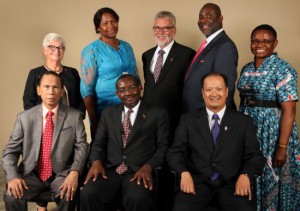
Judicial Council 2016-2020, UMNS
By Walter Fenton-
Most United Methodists have long recognized the debate over the church’s sexual ethics and its teachings on marriage has reached an impasse. However, a legal brief submitted to the UM Church’s Judicial Council (its “Supreme Court”) argues otherwise. It essentially invites the church’s highest court to prolong the legal maneuvering for several more years.
The brief, filed on behalf of the Western Jurisdiction College of Bishops, is in regard to last July’s election and consecration of an openly gay, married bishop. In late April of this year the Judicial Council will consider the legality of the moves. Shortly thereafter it will issue what is sure to be one of the most important judicial decisions in the UM Church’s history.
When the Western Jurisdiction Conference, meeting in Scottsdale, Arizona, elected the Rev. Karen Oliveto as a bishop of the whole church, the South Central Jurisdiction (SCJ), which was meeting concurrently in Wichita, Kansas, voted to ask the Judicial Council to rule whether her nomination, election and consecration were lawful. Parties on both sides have since submitted briefs.
The brief from the Western Jurisdiction (WJ) is a combination of chutzpah and legalistic hairsplitting.
Its first line of defense is to claim the election of an openly gay, married bishop in its jurisdiction has no bearing on the work of the SCJ or, for that matter, any other jurisdiction. Therefore, it argues, the Judicial Council should, in so many words, tell the SCJ to butt out of its business.
that matter, any other jurisdiction. Therefore, it argues, the Judicial Council should, in so many words, tell the SCJ to butt out of its business.
Realizing this argument might not fly, the brief goes on to invite the Council to join the WJ in either ignoring or engaging in legalistic hairsplitting when it comes to The Book of Discipline.
At the time of her election, the brief argues, Oliveto was a pastor in good standing so the WJ’s election of her was perfectly legitimate.
True, it acknowledges, most if not all the delegates and bishops at the WJ conference knew she had admitted to the New York Times she had presided at some 50 same-sex weddings during her tenure as a UM pastor. And yes, they were also aware UM pastors are prohibited from presiding at such affairs. And yes, they knew she was married to a deaconess in the UM Church. And true, they were aware the church defines marriage as between one man and one woman. But …
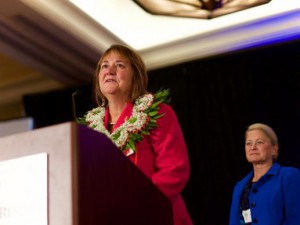
Rev. Karen Oliveto accepting her election, UMNS
No one had ever filed a complaint against Oliveto. She had never been found guilty of violating the Discipline. And besides, while the Discipline clearly defines marriage as between one man and woman, it never explicitly states a pastor or a bishop cannot be married to a person of the same sex. This is akin to the boy caught stealing, responding to his parents’ citation of the commandment, “You shall not steal,” with the retort, “God never specifically said I should not steal.”
Again, sensing the weakness of its argument, the brief reminds the Council a special commission is studying matters germane to this case. Better, it argues, for the Council to stand down for now, and defer to the uncertain outcome of the commission’s work and a special called General Conference that may or may not meet in 2019.
To their credit, the brief’s authors do a passable job of making weak arguments sound the better. But moments of reflection reveal how strained they are.
First, when a bishop is elected, she is elected as a bishop of the whole church, not just the jurisdiction in which she is elected. She will join her colleagues on the Council of Bishops as a chief executive officer for the whole church. She is liable to serve as the presiding officer at General Conferences, she will nominate clergy and lay people to serve on general church boards and agencies, and serve herself as a chairperson of those same boards and agencies. Furthermore, it is not unheard of for bishops to end up serving in jurisdictions other than the one in which they were elected. The SCJ, along with other jurisdictions, clearly has a legitimate interest in the lawfulness of episcopal elections in the separate jurisdictions.
Second, the claim that Oliveto was a clergy member in good standing at the time of her election and consecration is an argument the Judicial Council should thoroughly explore. Why that fiction was true will drive home the necessity of it ruling in favor of the SCJ, and simultaneously reveal the roots of the UM Church’s present crisis.
The only reason Oliveto could be said to be in good standing was because clergy colleagues, district superintendents, and bishops were all complicit in ignoring the plain facts of her situation. Many knew she had presided at same sex weddings. And long before she arrived in Scottsdale last July, most, if not all, the delegates and bishops present knew she was married to another woman. And if they didn’t know when they arrived, they learned of it shortly thereafter. Still, the delegates elected her, and the bishops consecrated her, knowing she had violated church law.
The WJ brief is inviting the Judicial Council to play along with this charade; it should not. When district superintendents, bishops, and an entire jurisdictional conference become complicit in allowing a pastor to flout church law, it becomes imperative for the Judicial Council to act. It is the only body left that can defend the church’s polity and maintain the good order of the church.
Furthermore, there is no reason it should defer to the Commission or a potential called General Conference. When the 2016 General Conference approved of the Commission’s creation, it never even intimated the Judicial Council should suspend the enforcement of church law. It must continue to fulfill its duties regardless of developments that may or may not happen.
Nor should the Council fall for the spurious argument that rendering a decision would usurp the General Conference’s legislative function. The SCJ’s request for a declaratory decision does not request the Council to legislate; it simply asks it to interpret and apply church law. And in this case it is imperative it does so since the Western Jurisdiction delegates and bishops have demonstrated they have no intention of abiding by or enforcing it.
Finally, it is important to note the SCJ’s brief is not asking the Judicial Council to take or suspend Oliveto’s ministerial credentials. In fact, Oliveto is only a party to the case insofar as she made herself complicit in the WJ’s defiance of church law and its willingness to provoke a church crisis. Should the Council rule the WJ’s actions null and void, she will remain a clergy person in good standing and be available for an appointment. And if a complaint is filed against her, she will be entitled to due process. But neither she nor the WJ are entitled to flout church law.
The Judicial Council should call the Western Jurisdiction’s bluff, ignore a brief inviting it to countenance endless church conflict, and end the legal wrangling.
_______________________________________
To read the brief on behalf the Western Jurisdiction College of Bishops click HERE.
To read the brief on behalf of Ms. Dixie Brewster, the South Central Jurisdiction lay delegate who made the motion requesting the declaratory decision, click HERE.
To read a reply to the brief on behalf the Western Jurisdiction College of Bishops click HERE.
Walter Fenton is a United Methodist clergy person and an analyst for Good News.

by Steve | Feb 20, 2017 | In the News, Perspective E-Newsletter
By Walter Fenton-
Some United Methodists are pleased to pay them, others have come to loathe them, and still others have little or no idea they are contributing to them when they tithe and make gifts to their local church on Sunday morning. The “them” is apportionments; financial payments local churches make to fund the mission of a large, connectional denomination like the UM Church.
In a recent press release, the denomination’s General Council on Finance and Administration reported that 27 of the denomination’s 56 annual conferences paid 100 percent of their apportioned shares. And the United Methodist News Service followed-up with an article headlined “Record number of conferences give 100 percent.”
The report of a record struck some United Methodists as counterintuitive given all the turmoil in the church. The long and acrimonious debate over the church’s sexual ethics and teachings on marriage has reached a crisis point. Several regional bodies have voted to defy its teachings, and one jurisdiction elected an openly gay bishop. These troubling developments come on top of news that average worship attendance at local UM churches continues to plummet, reports that some congregations are withholding their apportionments, and that some individuals are requesting that their personal tithes and gifts not be used to pay their church’s share.
So how, when it comes to apportionments, could the UM Church be setting any records? After all, apportionments are the financial means we pay for 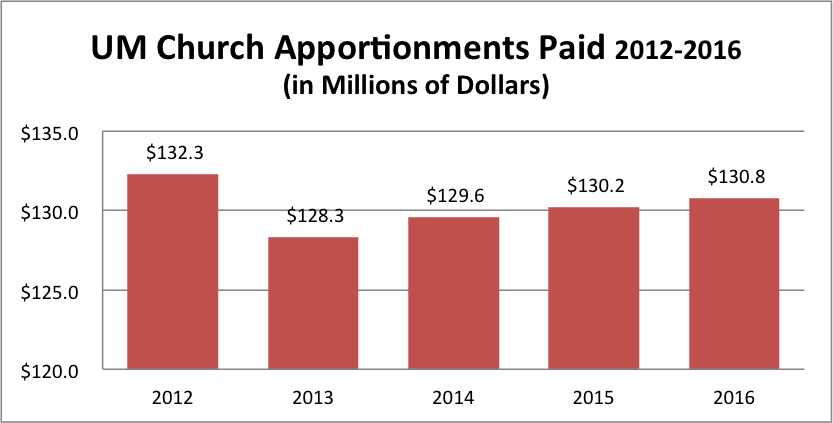 programs, salaries, housing allowances, and travel budgets for denominational staff. Apportionment budgets are one way we gauge United Methodism’s vitality and sustainability.
programs, salaries, housing allowances, and travel budgets for denominational staff. Apportionment budgets are one way we gauge United Methodism’s vitality and sustainability.
Well, first it is important to clarify what the GCFA’s press release and the UMNS article did not say: neither report that a record amount of dollars have flowed into the denomination’s coffers. In fact, the 56 annual conferences contributed $130.8 million in 2016, just three-tenths of one percent more than the previous year’s $130.2 million, but well below the annual inflation rate of 2.1 percent.
Giving to the denomination actually reached a ten year high back in 2012 when the conferences forwarded a collective $132.3 million. Giving then dropped precipitously the following year ($128.3 million or minus 3 percent) and ever since the church has been struggling to regain lost ground.
Second, it is not surprising more annual conferences are paying 100 percent. The apportioned amount GCFA has asked of each conference has fallen or remained flat seven of the past ten years. The general church asked for a ten year high of $151 million in 2008, but by 2016 it had lowered its target to $143.1 million, a 5.2 percent drop. In short, as the church sets the apportioned amounts lower more conferences are able to meet them. (It should be noted GCFA does not arbitrarily apportion amounts to the annual conferences; each year it uses a formula approved and deemed fair by the general church.)
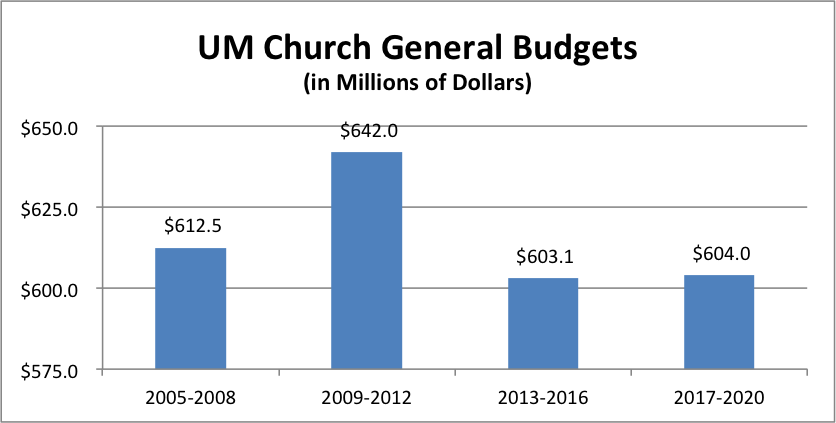 This drop in the amounts apportioned to annual conferences comes from the general church budget, which is set by General Conference every four years. The budget has slipped dramatically over the past three General Conferences. It reached a high of $642 million for the 2009 – 2012 quadrennium, and then fell to $603.1 million for 2013 – 2016. The 2016 annual conference essentially voted to keep the budget flat in terms of actual dollars by approving a general church budget of $604 million for 2017 -2020.
This drop in the amounts apportioned to annual conferences comes from the general church budget, which is set by General Conference every four years. The budget has slipped dramatically over the past three General Conferences. It reached a high of $642 million for the 2009 – 2012 quadrennium, and then fell to $603.1 million for 2013 – 2016. The 2016 annual conference essentially voted to keep the budget flat in terms of actual dollars by approving a general church budget of $604 million for 2017 -2020.
Third, while annual conferences paying 100 percent are to be commended, 17 of the 27 are from the bottom half of annual conferences in terms of amounts apportioned. Only two of the ten largest conferences paid 100 percent (Indiana and North Carolina), while the top five (Texas, North Georgia, Florida, Virginia and Western North Carolina) remained flat in their giving or paid less 2015 to 2016.
In short, while 27 annual conferences paying 100 percent of their apportionments is good, it is a data point that needs contextualization.
Over the past ten years conference apportionments paid have fallen well behind
the rate of inflation (17.3 percent) even though the average annual inflation rate over the period has been mild (1.8 percent). If the amount paid in apportionments had simply kept pace with inflation over the past ten years, the church would have received $150.9 million, rather $130.8.
The UM Church’s failure to keep pace with inflation has forced it to make cuts in
terms of program and personnel, and curbed its ability to fund new initiatives. For instance, from 2014 to 2015 the annual conferences collectively eliminated 27 districts in an effort to reduce expenses. That is the largest single-year reduction in the church’s history.
Finally, apportionment payments are a lagging indicator when it comes to the UM Church’s health and vibrancy. As most pastors and church treasurers will testify, it always seems like a small percentage of a congregation – those most invested in its mission and goals – step up to make sure a local church meets its obligations and then some. Consequently, giving to local churches, and subsequently to annual conferences and the general church, does not necessarily track closely with the ups and downs of membership and worship attendance. In fact, it is not unusual to see giving increase even though membership and worship attendance decline, but of course this is not a sustainable model.
Over the past ten years giving in actual dollars to the UM Church’s general funds has stagnated, and fallen significantly behind when accounting for inflation. It is laudable that 27 annual conferences paid 100 percent, but there is more to the story, and unfortunately, it is largely troubling.
Walter Fenton is a United Methodist clergy person and an analyst for Good News.

by Steve | Feb 10, 2017 | In the News, Perspective E-Newsletter

In this short video, the Rev. Rob Renfroe, president of Good News and pastor of discipleship at The Woodlands UM Church (The Woodlands, Texas), talks about the imperative of being the church even in the midst of discord and distractions. He identifies sharing the Gospel, making disciples, and being mission oriented as three key markers of a healthy and vibrant local church. We encourage you to watch the video, share it with your leadership and even your congregation, and then reclaim your focus for the ministry and mission of your church










